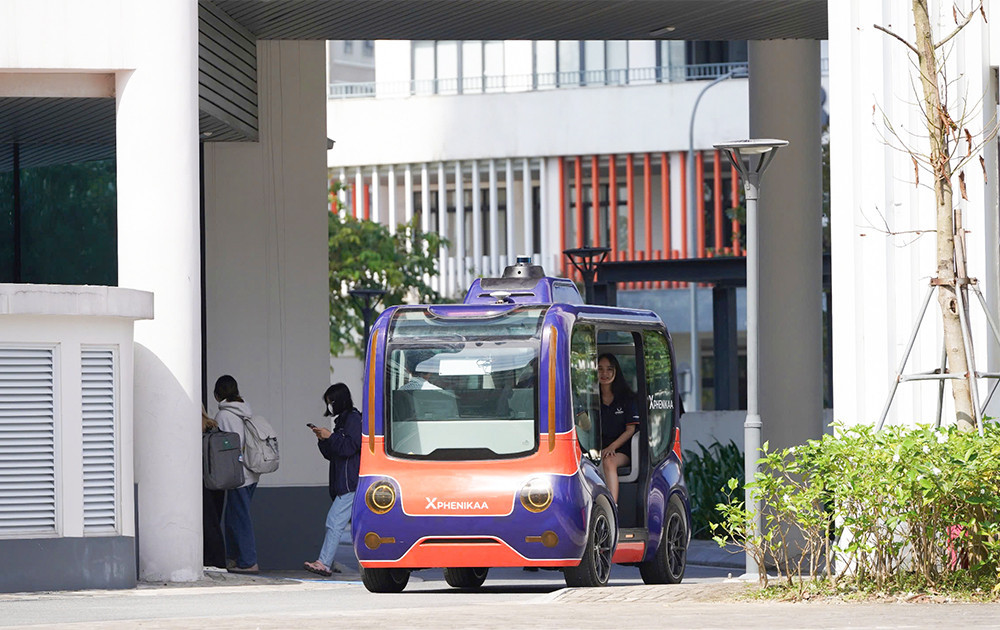
Le Anh Son, deputy director of the Phenikaa Research & Technology Institute and director of Phenikaa-X JSC, recently discussed this matter.
Resolution 57-NQ/TW on breakthroughs in science, technology, innovation, and national digital transformation has just been released by the Politburo. How do you evaluate this resolution?
What we’re most eager for is a one-stop-shop mechanism for sandbox. With a sandbox, businesses can make proposals to the government without having to ‘go through too many doors’.
In all new and creative fields, too many doors and too much time consumed will kill opportunities for breakthroughs, because startups can’t wait.
Secondly, the technology community looks forward to support in building a comprehensive tech ecosystem with the participation of large, medium, and small enterprises, alongside hopes for flexible financial mechanisms and strong investment in future products, regardless of the public or private sector.
Many countries have venture capital funds where the state invests. The state funds potential startups, aligned with strategies to master core technologies. This fund needs a team of advisors who are experts in various fields to identify which startups are promising, which ideas are groundbreaking, which technologies are feasible to pursue, and how the advisory board can assist them.
The resolution mentions the role of large enterprises in leading innovation. What would you say about the role of the enterprises?
We can’t master all core technologies or follow other countries to do the things in which we don’t have advantages and competitiveness. That’s why the guidance and leadership of large enterprises are extremely important.
These large enterprises must be required to invest in research and development, collaborate with and support startups by providing facilities, strategic direction, standardization, and building shared digital infrastructure and platforms. They should avoid acquisitions that stifle startups’ creativity.
For example, if we focus on AI, we need large-scale AI factories. So, what should the state or large enterprises do? It could be creating a server system that all startups can use—an effective way to help them. This requires significant procedural breakthroughs so startups can join quickly and easily.
Second, when the state focuses on a field and invests in a large company, that company needs to share jobs with smaller firms to mobilize the whole country’s resources. In reality, in the tech sector, many Vietnamese companies are capable of taking on difficult tasks, and the problem is just whether we accept to assign tasks and trust them.
The State should also give support in market exploration. It could be the first customer for startups and partner with them from the start to build the market.
The government should study barriers related to investment mechanisms, tax policies, and the business environment, so that enterprises choose Vietnamese companies for investment, and so that startups can locate in Vietnam when calling for foreign investment instead of locating their headquarters in Singapore.
Does Phenikaa-X face obstacles when implementing its projects?
Phenikaa-X is running many tech projects. With smart factories, the products have been delivered to foreign invested clients. For instance, Samsung is using Phenikaa-X robots in its factories. Phenikaa-X is also testing a "5G Private network" with major partners in some areas for smart factories and smart cities.
Additionally, Phenikaa-X is researching drones (unmanned aerial vehicles) and has developed some AI drone models, especially ones used for managing vast forest areas (using AI).
For drones, a testing mechanism is badly needed. Phenikaa-X products are being experimented in HaTinh province under a license from the Ministry of National Defense.
As for automation guided cars, Phenikaa-X is allowed to run the cars on a trial basis in isolated areas. We want self-driving cars to be permitted to roll on real roads for testing to collect data, as data is a critical bottleneck in applying AI.
Why haven’t authorities allowed self-driving cars to be tested outside yet?
Innovation means creating new, unprecedented products to solve problems, and some innovation research needs to be 5-10 years ahead to prepare for transformation. For self-propelled vehicles in general and self-driving cars in particular, there are no specific laws yet, and no standards for inspecting driverless vehicles.
We strongly hope for support from the government, ministries, agencies, and localities to expand testing widely, like Japan, which is testing self-driving cars in over 100 areas, with 50 funded by the government through the SIP (Strategic Innovation Promotion Program).
Duy Anh - Phan Chi Hieu